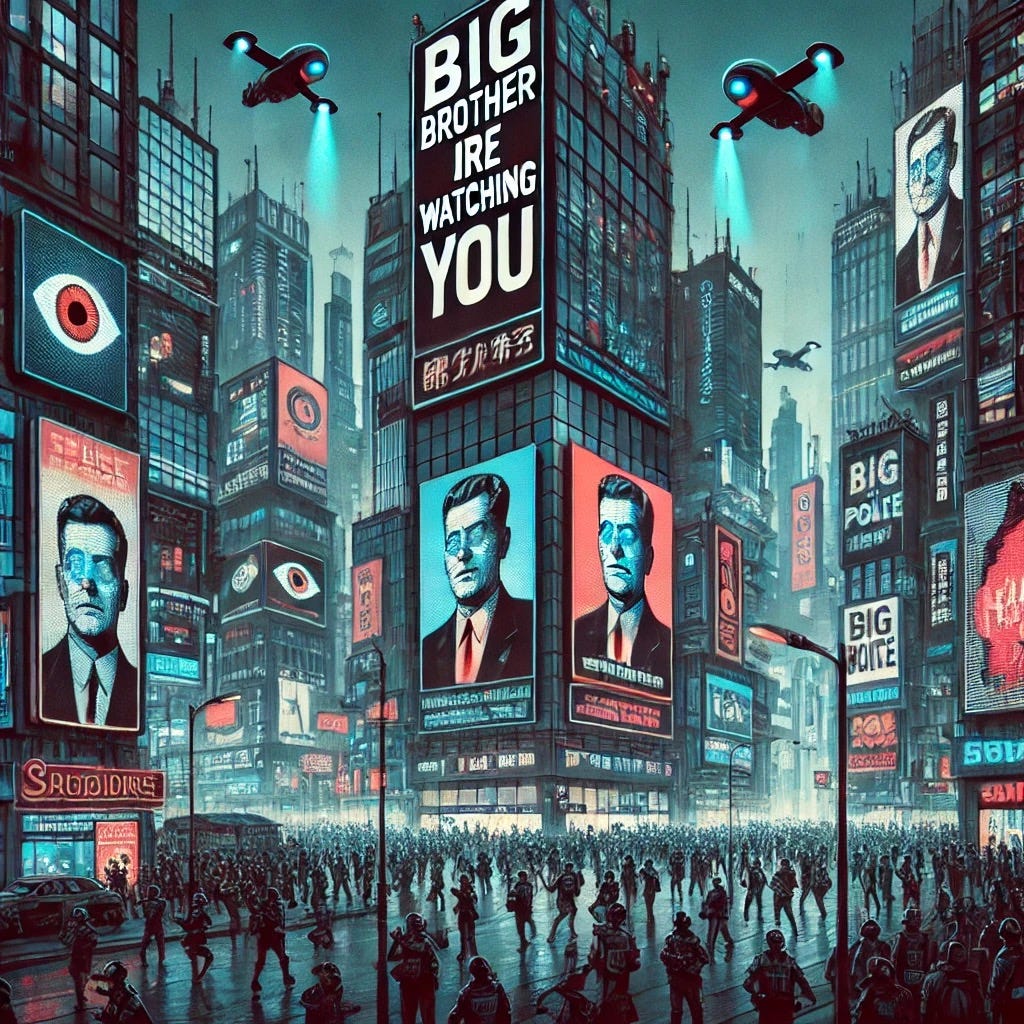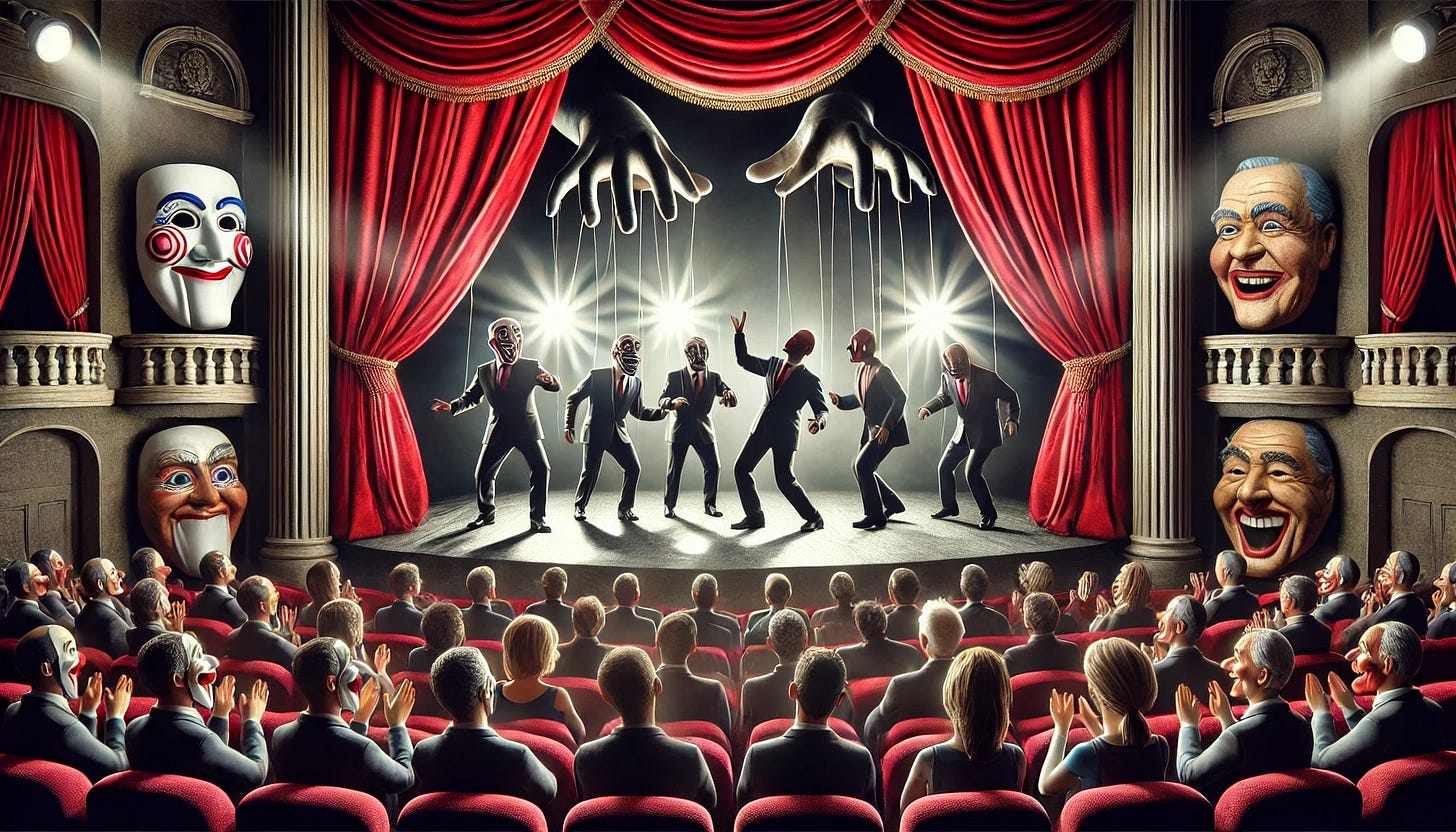The Politics of Amnesia: How Rulers Exploit Your Forgetfulness
Every few years, the political circus rolls through town, offering up new promises, new villains, and new slogans. Voters, despite being battered and betrayed by every administration that came before, line up eagerly, ready to believe that this time will be different. Yet, time and again, history repeats itself, and the cycle of exploitation, deception, and repression continues. Why? Because both voters and political obsessives suffer from a manufactured form of historical amnesia: a deliberately cultivated forgetfulness that allows the system to persist unchallenged.
From the very inception of the United States, every administration has carried out its own brand of oppression, from the genocidal policies against Indigenous peoples to the institutionalization of slavery, from imperialist wars to mass surveillance. And yet, every election season, a fresh batch of politicians is paraded in front of the public, each one distancing themselves from the crimes of the past while laying the groundwork for the next betrayal. Those in power count on the public’s inability or unwillingness to recall the failures and atrocities of previous rulers. They rely on the fact that, as soon as a new administration takes office, the crimes of the old one fade into the background, washed away by the spectacle of the present.
This isn’t a flaw in the system: it is the system. The structure of representative democracy itself encourages passive participation and short term thinking. Voters are conditioned to see history in four year increments, rather than as a continuous cycle of state violence and economic exploitation. The state’s propaganda machinery, from the corporate media to the education system, ensures that political memory is kept hazy, fragmented, and full of convenient omissions. Politicians who were war criminals yesterday become respected elder statesmen today. Economic crashes engineered by policymakers are blamed on vague “market forces.” The same wars that were condemned under one administration are continued under the next, with only the rhetoric slightly adjusted.
Meanwhile, those who refuse to forget, those who recognize that the problem is not this politician or that party, but the very existence of the state itself, are dismissed as radicals, cynics, or lunatics. But in truth, the real lunacy is the belief that a system built on coercion and exploitation can be reformed simply by choosing a different overseer.
And, like clockwork, the election cycle ends with predictable outrage. One half of the country, no matter who wins, spirals into despair and fury, convinced that civilization itself is now at risk. The other half feigns optimism, only to be disappointed within months. Protests erupt, op-eds flood the internet, social media explodes with righteous indignation. But this outrage, too, is just another cog in the machine. It is not only expected, it is monetized.
Political outrage is the fuel that keeps the media and corporate interests thriving. News outlets rake in profits from a divided public, selling fear and scandal at a premium. Social media giants, the new town squares of controlled discourse, see record engagement as users rage at each other, feeding the algorithms and generating ad revenue. Even corporations, sensing opportunity, line up to “take a stand,” plastering hollow political statements on their products while continuing their labor exploitation and economic destruction. Political chaos is a business, and business is good.
The brilliance of this system is that it keeps people locked in reaction mode, perpetually upset, perpetually engaged, but never questioning the structure itself. Voters forget that they felt the same outrage four, eight, twelve years ago. They forget that every administration before this one committed crimes, trampled freedoms, and served the same economic and political elites. Instead, they invest their energy into fighting over symptoms while the disease remains untouched.
Nothing exemplifies this manufactured outrage more than the selective concern for human trafficking. Political obsessives only care about it when it’s tied to their ideological enemies. If a politician or a celebrity is accused of involvement, their outrage is deafening, their moral fury turned up to the highest volume. But mention the trafficking happening in their own communities, the children disappearing from their neighborhoods, the women being exploited in the backrooms of businesses they pass every day, and the response is that of absolute crickets and disinterest.
Because in reality, their outrage was never about human trafficking. It was about political theater. They care about trafficking only when it’s useful, when it can be turned into a talking point, a scandal, a weapon against the other side. But the moment it requires real action, real awareness, real engagement? They check out. Because solving the problem isn’t the point: keeping the outrage machine running is.
Anarchists understand that the outrage is real but misdirected. The anger people feel after every election is not just about who is in power, it is about the very nature of power itself. But as long as that anger is safely channeled into partisan bickering, electoral hopes, and corporate-sponsored activism, the system remains unshaken. Real change will not come from another election cycle, another round of protests, or another “most important vote of our lifetime.” It will only come when people stop playing the game entirely and remember not just the failures of politicians, but the fundamental lie of governance itself.
Thanks for reading Organarchy! If you enjoy our content, please consider subscribing. Subscriptions will remain 100% free indefinitely 🌱 ⩜⃝.





Fire, dude. Infuego!